| Spotlight
Better Bangladesh, Better World
Wouldn't it be frightening if the sun didn't rise to give us light and heat, if the rivers didn't flow to provide us with rich lands and life-sustaining harvest, the air didn't give us enough oxygen to see, hear, speak or laugh? And to ensure that these apprehensions do not come to life, the youth of Bangladesh must work to protect our environment from further damage. What is it that can actually be done by the young people of the country?
Here are some of the statements and suggestions that we have received from our readers, mostly students, on how to become active and responsible citizens for our country.

THE environment of the world, especially Bangladesh, is now in danger. It is in a horrible state and only we are to blame, with our uncontrolled use of electricity and the huge amount of carbon emission. But it's not too late, we still have time. We can all take a few small steps in lowering the pollution. All we have to do is remember to turn off the lights when no one is in the room or unplug our chargers when they are not being used and many other small things like turning off the fans and air-conditioners when it is not needed. The whole world is being cautious about a deteriorating environment; why should not we. We should all aim for a greener lifestyle because Bangladesh is our home and Bangladesh deserves to be taken care of by its citizens.
Farahnaaz Feroz
(Kingston University London)
 Those of you who grew up watching Captain Planet, surely know the catch phrase “The power is yours!” This animated environmentalist television programme portrayed the devastating destruction occurring around us, and how human activities are threatening the ecosystem. We have been long taught about the alarming consequences that will be followed because of such activities. Yet we tend to forget at times that the betterment of the world is in our own hands. We might not posses those magic rings that the Planeteers had, nevertheless we can stop being the catalyst for these extensive damages. Those of you who grew up watching Captain Planet, surely know the catch phrase “The power is yours!” This animated environmentalist television programme portrayed the devastating destruction occurring around us, and how human activities are threatening the ecosystem. We have been long taught about the alarming consequences that will be followed because of such activities. Yet we tend to forget at times that the betterment of the world is in our own hands. We might not posses those magic rings that the Planeteers had, nevertheless we can stop being the catalyst for these extensive damages.
Bangladesh, though a small nation, does have a significant role to recuperate world's health. Minute acts like recycling, which by the way is nothing new to us, is in vogue and developing countries like Bangladesh will stand as an example if we make recycling a self-congratulatory ritual. Every hour, every day, every week, reducing the gargantuan waste by-products of humans can conserve the natural resources and reduce pollution. Recycling glass bottles, papers, steel, aluminum, electronic devices does not only help the environment, but also can turn into a flourishing business. Since recycling reduces energy consumption because it takes less energy to recycle a product rather than making a new one, manufacturers today use old monitors, mobile phones, circuit boards, and other peripheral computer equipment to refurbish them into brand new products and sell them in the market.
 It's not a rocket science to figure out how to start taking initiative to stop annihilating our national resources. All it takes is baby steps to change our lifestyle and aware others to save our environment. You never know what that waste-choked sewage drain near your house may contain. Before disposing wastes, always separate paper bags, newspapers, aluminum cans and materials that can be reused later. Even that old mobile phone that has been hiding in your closet can be reused! It's not a rocket science to figure out how to start taking initiative to stop annihilating our national resources. All it takes is baby steps to change our lifestyle and aware others to save our environment. You never know what that waste-choked sewage drain near your house may contain. Before disposing wastes, always separate paper bags, newspapers, aluminum cans and materials that can be reused later. Even that old mobile phone that has been hiding in your closet can be reused!
A typical initiative for young people like us will be to aware others to separate their recyclables from their trash before dumping them on the dumpster. We should encourage communities to take charge of their own residential areas to collect the recyclable products.
If you are a young entrepreneur who is willing to start something that will earn you big bucks, perhaps 'green jobs' is what you are looking for. Conservation movement workers, environmental consultants, green business owners, green vehicles, ecology educators, organic farmers and many more, the list goes on. These jobs can earn profit while benefiting the environment.
Countries around the world are joining hands to recycle products and make this a better world, why can't we?
Tanzina Rahman
As you wander along the streets of Dhaka city, every now and then you will inevitably stumble across hostile confrontations varying in degrees of aggression - ranging from mild verbal disputes to grisly physical altercations. It almost seems that these incidents can erupt anywhere and anytime between any random people roaming about the place. Why is it that people of this city fly off the handle so fast and so often? Why is such anger and frustration seething beneath the surface that, at the slightest provocation, people are reduced to spluttering masses of quivering rage? Perhaps it is an indication of how the psychological strain and turmoil of the rat race of city life make people lash out with unwarranted ferocity at trivial problems of life. It is time for us to free ourselves from the vile clutches of disenchantment that has numbed the joy of the simple things in life and has inundated us with deep mistrust of our fellow human beings.
Ridwan Karim
 Environment is generally treated as everything that comprises our surroundings. Human being, itself is a component of environment's biosphere, is the main catalytic variable of environmental dynamic for three main reasons, that is, their tremendous adaptability, willingness to compromise the environment for economic gain and the potential for preservation of the environmental systems. Environment is generally treated as everything that comprises our surroundings. Human being, itself is a component of environment's biosphere, is the main catalytic variable of environmental dynamic for three main reasons, that is, their tremendous adaptability, willingness to compromise the environment for economic gain and the potential for preservation of the environmental systems.
In Bangladesh, the most important environmental issue is water. Increasing demand of surface water, lowering of ground water table, decreasing of wetlands, flooding and poor drinking water quality are enough to evince criticality of the situation. Land loss due to river erosion, high land-person ratio and unplanned land use has become a common environmental feature. The cutting of hills in Chittagong is an addition to this feature. Continuous forest depletion, particularly along the coastal and Northwest zones has made the situation almost irreversible. Gradual extinction of genetic resources (biodiversity) is now a well-recognized ecological crisis. Urban environment is also under threat due to population pressure, inadequate civic facilities, poor drainage and waste management system and many more.
Most of the processes responsible for environmental pollution are initiated by anthropogenic factors, thus, the rate and extent can be easily reduced if we change the use of natural resources and reduce activities which have adverse impact on earth's natural environment.
The problem of pollution and degradation of environment for Bangladesh are three main constraints in preventing environmental pollution, high population growth, poverty, and the absence of a comprehensive national policy. All these factors initiate the unsustainable use of earth's resources and constrain preventive measures.
Furthermore, the fight against pollution of environment has to be concerted at all levels- individuals, communities, village, towns, cities, mega-cities, states, governments and intergovernmental bodies, continental and global. Such a conceptualization may seem highly theoretical and ambitious. I also feel the same, but I also believe that environmentalists, sociologists, economists, anthropologists, legal experts and the politicians would be able to locate their respective areas in this conceptual frame to develop an integrated approach and to place it before planners and policy makers for facilitating the preservation of environment. In this endeavor to protect our environment short-term personal or regional interest must be subordinate to the global and long-range interest.
Mohammed Tareq Hasan
(Department of Anthropology, University of Dhaka)
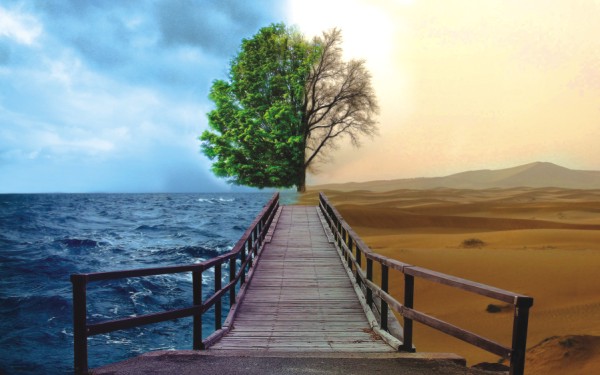
"This country will not be a good place for any of us to live in unless we make it a good place for all of us to live in."
- Theodore Roosevelt
Bangladesh cannot be made a better place to live in unless we - the educated and privileged people of society - come together to make it a better place. Bangladesh, being a developing country, has several aspects that need to be modified.
One key problem is its slums. The slum dwellers are scattered all over Dhaka city. These comprise of the village people who came to this city with myriad dreams in their eyes, hoping to accomplish their dreams. These people do not have any proper habitat. In order to make a proper living for them, we should take the initiative to build low cost buildings with proper sanitation facilities, water and electricity supplies. These accommodations can then be rented out to the slum dwellers by the government, as most slums are located on government properties.
By taking such initiatives, we the privileged few - can make a positive change in the lifestyle of the less privileged people of our country.
Sumaiya Ahsan Bushra
Awareness is the best way to preserve our environment. We the new generation can grow awareness among us. If we keep our environment clean by discarding our waste in a specific place, prevent ourselves from using polythene bags, stop smoking publicly etc, then what will be the result? Please, think deeply! While brushing our teeth we can keep the tap closed, after cooking we can switch off the burner, while leaving the room we can switch off the fans and lights. These small changes in our behaviour can help to preserve our resources. Let us start individually! Our small effort will bring an immense change. In the world eventually!
Fahria Kabir
(Asian University for Women, Chittagong)
Apopulous country like Bangladesh is considered to have inadequate capacity to convert its population into skilled manpower. The population issue will create more complications if we have no preparations to build up a self-sufficient nation by providing support from both government and NGOs. Let us consider the issue of floaters. We have been observing from our early lives that the floaters reside in the open space like the parks or footpaths throughout the urban areas. The ignored population could have been utilised if the government or NGOs had the proper will. The huge number of floaters could be trained so that they can be integrated into the mainstream. Society has already witnessed the unsavoury alternative of the floating population becoming totally unproductive as they are forced to play the role of beggars. Many a times, the floaters engage in criminal activities. These are huge obstacles in the path of achieving MDG goals. Here's what I believe might help the situation. We need to ensure housing support to the above mentioned underprivileged. We need to create an awareness programme to lift up the most ignored population to the mainstream of the society by providing technical education. They would also need some moral lessons and we should find a way to help them regain a social status which would enable them to improve their situation and play a role in the progress of the country.
M Kamruzzaman
(M Phil Researcher, University of Dhaka)
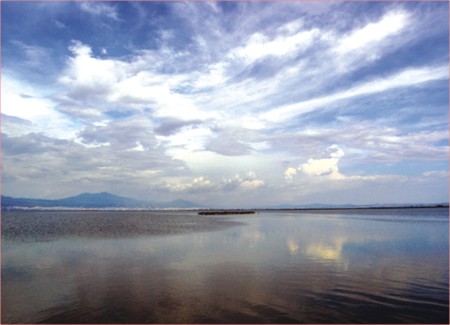
Bangladesh is a poor country, but it has many natural resources like the Sundarbans, the largest mangrove forest, Cox's Bazar Beach, the longest beach in the world. What we can do simply is that we can promote sustainable tourism in these places. Besides, we can plant more trees and turn Bangladesh into a green country. The people worldwide will be amazed to see the greeneries and wilderness of Bangladesh. The ultimate plan is that we should lower the rate of pollution, such as emission of green house gases. Through promoting sustainable tourism the money we will earn will be used to promote renewable energy sources.
Shaila Sharmin
(Asian University for Women, Chittagong)
Everything, which is incorporated in our surroundings, is called Environment. But everyday it is being polluted by our ignorance. Massive industrialization and increase of lavish consumers in the society of the developed countries have largely accounted for the ills caused to the environment. From my point of view, if the educated and privileged people of the society take the initiative for the betterment of the environment then they are bound to make Bangladesh a healthier place to live. The role of media should be enhanced in this regard, posters with pictures and publicity should be increased, and co-ordination is necessary between administration and the authority of the public places. The effectiveness of the policies and laws related to the environment should be increased. We achieved our independence in 1971 through Liberation War; the sacrifice of the people should not go in vain. They had a dream of a better Bangladesh and it is our responsibility to make their dream come true. We should keep in mind that, it is our country and the preservation of its environment is solely our responsibility.
Shushmita Ahmed
(Department of Law, University of Chittagong)
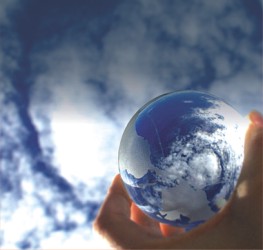 Destroying the world we live in has almost become second nature to us. We fail to comprehend the consequences of such actions. We need to change our entire mentality and outlook on this subject. We must remind ourselves that we too are a part of the environment. Emitting toxics in the air, mixing water with poisonous chemicals, decreasing cultivable land and continuing deforestation indicate only one thing- our environment is in grave danger. Without a resolute commitment to live in a greener world, we can never preserve the environment. We need to make people of Bangladesh understand the necessity to conserve nature for their own survival. Let us take the vow that we shall all do whatever we can within our own capacities - like not littering PET bottles after use or not spitting on the road. These actions do not pose a tough burden on us! Destroying the world we live in has almost become second nature to us. We fail to comprehend the consequences of such actions. We need to change our entire mentality and outlook on this subject. We must remind ourselves that we too are a part of the environment. Emitting toxics in the air, mixing water with poisonous chemicals, decreasing cultivable land and continuing deforestation indicate only one thing- our environment is in grave danger. Without a resolute commitment to live in a greener world, we can never preserve the environment. We need to make people of Bangladesh understand the necessity to conserve nature for their own survival. Let us take the vow that we shall all do whatever we can within our own capacities - like not littering PET bottles after use or not spitting on the road. These actions do not pose a tough burden on us!
Shuvashish Roy
(Institute of Business Administration, Jahangirnagar University)
To many of us, preserving environment means planting trees and cleaning up the roadside garbage. But there is another side. That is, we can redeem the adverse effects caused to environment through recycling, waste management and alternative energy. Our neighbouring country, India is generating 10,000MW from wind energy, whereas, having the same wind velocity, Bangladesh can generate 20,000MW against the demand of 5,500MW. So, investing in clean energy projects like solar energy, micro hydro power, geothermal, biomass and wind power can be viable alternative which would create employment, generate energy, boost industrial expansion and at last save environment and make it greener.
Adnaan Jamilee
(BBA, Dept.of Finance, University of Dhaka)
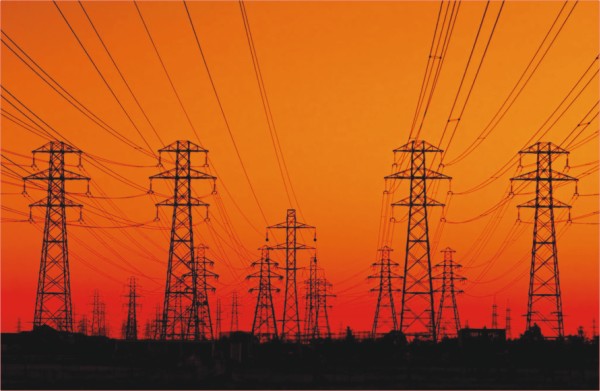
What a lot of people do not realize is that by abolishing things that damage the environment, without accounting for the millions dependant on them for a living, we risk weakening the global economy. By doing so we sacrifice our economy for the sake of short term-ecological improvements, but limit our own ability to protect the environment in the long run. The challenge is making governments and local communities see how they can benefit from improved lifestyles. There must be motivation, proper funding and support so that we can bring ecological sanctuary without compromising economy; otherwise we will be limited in bringing about those changes to further propel the potential of a brighter future into a more concrete reality
Badruddoza Jewel
(University of Chittagong)
We the young citizens of the country are also responsible for developing the status of our nation. Our neighbouring country India has developed greatly. How do you think that the country once called an underdeveloped country is now recognized as a developed country? Well, India's biggest plus point is the patriotism of its people. Indians are very sensitive when it comes to their country and yes, they barely scam their fellow Indians unlike our beloved Bangladeshi brothers and sisters. So number one - a better Bangladesh is only possible with us loving Bangladesh and thinking about the country's welfare over ourselves. Decentralization comes next. In India and the 1st world countries, the decentralization theory has been an operation bringing about a state wise rule. That is something that Bangladesh should bring into play and therefore, reduce the gathering population of Dhaka city. Avoiding the conventional occupations, Bangladeshis should learn to accept and allow varieties into its job sector. This means that money should be spent on the research and development sector that will allow advancements and will also be able to grab a hold of some of its most brilliant and talented assets who are flying away only because there are no scopes of research and development for them. That is one of the most effective ways of building a better Bangladesh. I, as a young citizen believe in youth power. Bangladesh can grab a hold of its greatest strength - the youngsters. Instead of having them go astray under the influence of drugs and alcohol, Bangladesh should utilize them and engender the sentiment in them that no job is demeaning. There is no shame in being employed at any capacity, whether abroad or at home. Better Bangladesh is only possible if we, its citizens want it to happen, if we actively pursue our dreams and we learn to love our country whole-heartedly. Then only can "Shonar Bangla" be a glorious reality.
Ramisa Fariha
(O level Student, ABC International School, Narayanganj)
 What should we do to protect environment? To protect environment we must create public awareness against the greed and lust for wealth by a section of unscrupulous people, who by hook or by crook want to make money by illegal and unfair means. What should we do to protect environment? To protect environment we must create public awareness against the greed and lust for wealth by a section of unscrupulous people, who by hook or by crook want to make money by illegal and unfair means.
We must identify the enemies of environment and create pressure on the authorities to act against those who hinder smooth river flow by erecting illegal structures, level hills to develop real estates and fell trees to make quick money.
We should have a strong party of environmentalists with branches in every nook and cranny of the country to act promptly against any anti-environment activity. Local communities should be entrusted and empowered to look after natural properties like rivers, forests, lakes, seashores, spots of natural beauty, etc. The community leaders should have authority to mob up the encroachers and hand them over to police.
The media, which have been playing a strong role against the enemies of environment, should expand their vigilance across the country.
We must involve religious leaders including imam of mosques, prayer leaders of temples and priests of churches to remain vocal against the crime. The prayer leaders of respective religious community should motivate people to rise up for the protection of environment. They must propagate it to the people that according to all religion “damaging environment means declaring war against the Creator.”
Lastly authorities should set up quick trial courts to punish people involved in destruction of environment.
Nizam
TO preserve our environment we should prevent the ship breaking industry of Chittagong by setting up a lot of effluent treatment plant (ETP). We should also take the initiative to transfer the tannery industry to Savar or a less polluted place. We should also restore the river by cleaning the polluted water. Dredging our rivers to increase its water containing capacity, protect our forest, ecosystem, ecology etc should also be part of our incentive. Most importantly, we should consider to control the population growth of Bangladesh.
Abdul Haye Molla
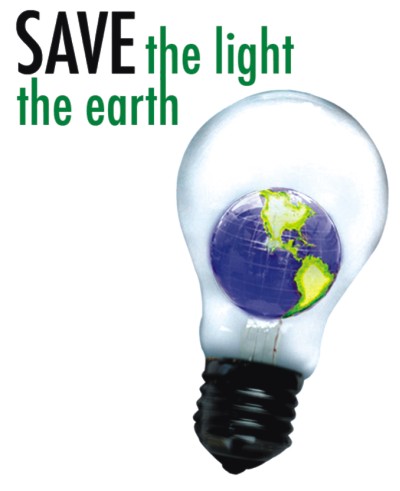
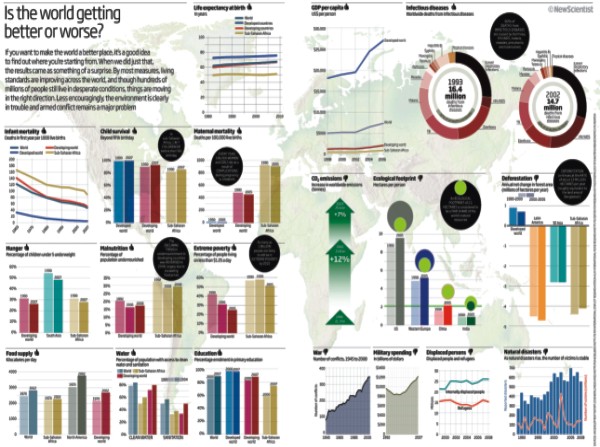
|

